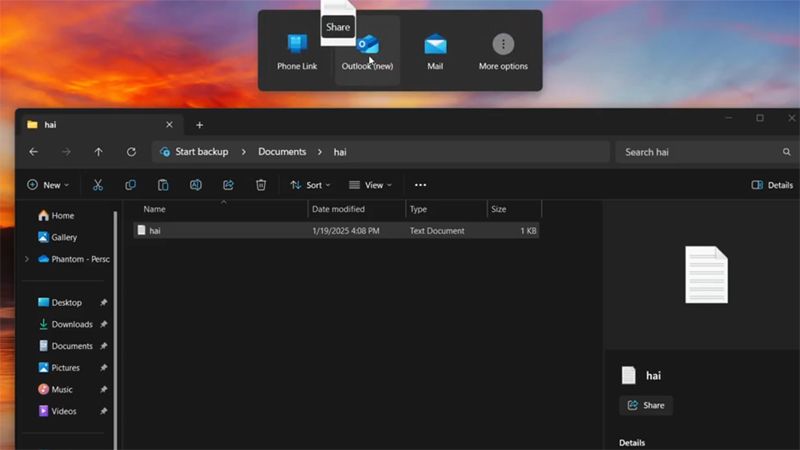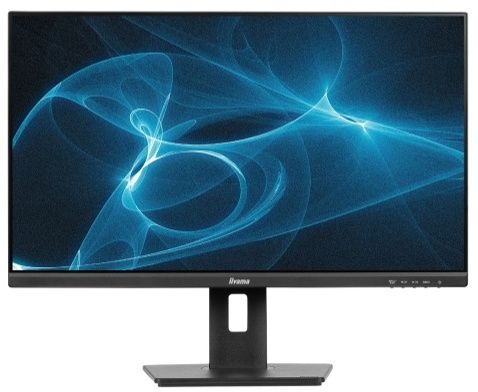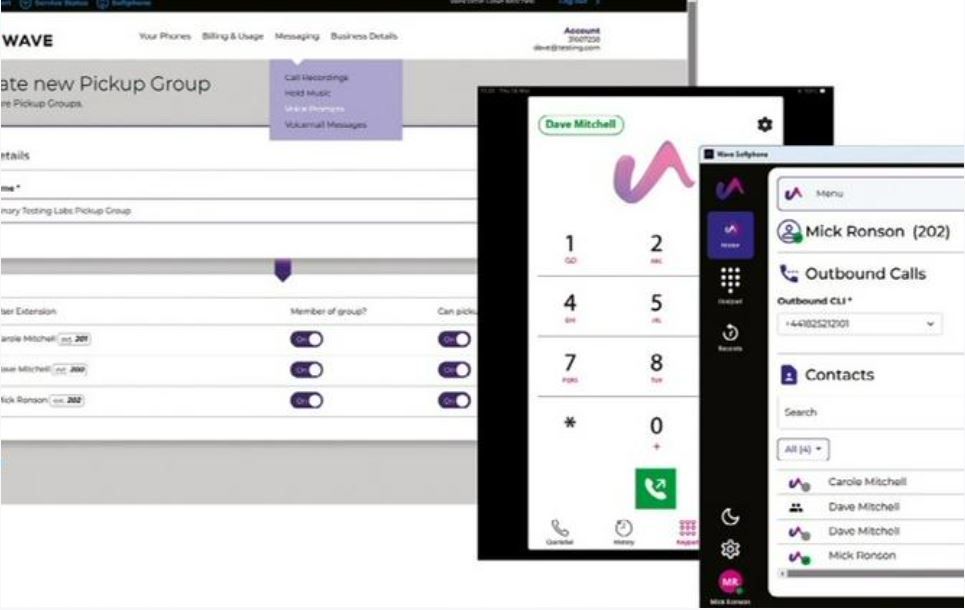Microsoft is experimenting with a ‘Drag Tray’ that appears when you drag a file in File Explorer, making it easier to share via email or Phone Link. X (formerly Twitter) user phantomofearth discovered this hidden functionality in Windows 11 Insider Preview Build 22635.4805.
However, this feature is not included in Microsoft’s release notes, so it’s likely something that’s not available to all users. You can also try this for yourself by running ViVeTool, typing in “/enable /id:45624564,53397005”, and then reboot your PC.
To try the Drag Tray out for yourself in the latest Beta CU, run vivetool /enable /id:45624564,53397005 and reboot.(as usual, you'll need to enable 48433719 if this doesn't work.)January 25, 2025
This feature is similar to sharing files and folders on Android and iOS, where you tap share and then a slide menu will open showing you your share options. As more people, especially the younger generation, are getting smartphones as their first computer, Microsoft is likely trying to make the experience of the operating system feel similar. That way, users can easily hop between smartphones, tablets, and laptops or desktops without feeling that they have to learn a completely new user interface and way of doing day-to-day things.
Aside from this hidden feature, Microsoft has added written and shortcut instructions to the Snap Menu which arrived with Windows 7. Even though Snap has been around for over 16 years now, it seems that not all Windows users are familiar with it.
So, adding instructional text and icons will help those who are new to PCs or are transferring from macOS, and could even spawn some power users as they discover the keyboard shortcuts that will make their workflow more efficient.

Hopefully, the ‘Drag Tray’ will make it to the general release of Windows 11. However, while we appreciate Microsoft adding new features with every release of Windows 11, it’s still quite a buggy operating system, and the release of 24H2 hasn't done much to assure those watching from previous OS versions.
This is likely why many people are still not upgrading from Windows 10 despite its coming end of life this October. The company has recently released another Insider Build that addressed some basic issues, like mouse stuttering and auto HDR issues, but it will likely take a few more weeks before these fixes hit the mainstream release channel.

 20 hours ago
6
20 hours ago
6









 English (US) ·
English (US) ·